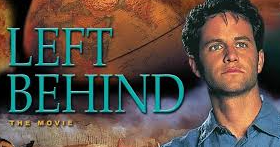The doctrine, or teaching, of the rapture, has sparked considerable debate and speculation within Christian circles, particularly in modern times. The concept of the rapture generally refers to the belief among some Christians that believers will be caught up to meet Christ in the air before a period of tribulation on earth. This belief is primarily derived from interpretations of certain biblical passages, particularly 1 Thessalonians 4:16-17 and 1 Corinthians 15:51-52, which describe the sudden gathering of believers to meet Christ at His return. But is this biblical? Without suggesting a definitive claim, let’s take a closer look.
It's essential to recognize that the idea of rapture, as commonly understood in modern times, is not explicitly articulated in the writings of the early church fathers. Instead, early Christians generally anticipated a future resurrection and judgment, often within the context of amillennialism or postmillennialism, rather than a distinct event of believers being taken up to meet Christ prior to a period of tribulation. These early perspectives tended to emphasize the broader hope of Christ's return, the defeat of evil, and the renewal of creation rather than the specific timing and sequence of events associated with rapture theology.
Overall, while the concept of the rapture has become a significant feature of certain strands of Christian eschatology in modern times, it should be noted that it does not align closely with the majority view of the early church. While the early Christians held diverse views on the end times, the specific formulation of rapture theology as it exists today developed much later in history, particularly in the nineteenth century with the rise of dispensationalism and the teachings of figures like John Nelson Darby.
Let’s look closer at the biblical foundations, historical evolution, and modern perspectives surrounding rapture theology as we seek to gain a deeper understanding of its complexities and significance within Christian eschatology.
Rapture theology finds its biblical roots in passages such as 1 Thessalonians 4:16-17, which speaks of believers being caught up to meet the Lord in the air, and 1 Corinthians 15:51-52, which describes the transformation of believers at the last trumpet. Proponents of rapture theology often cite these verses, among others, to support the notion of a future event where believers are taken up to meet Christ before a period of tribulation.
However, critics of rapture theology point to alternative interpretations of these passages and emphasize the absence of explicit references to a pre-tribulation rapture in Scripture. Verses such as Matthew 24:29-31, which describe the coming of the Son of Man after the tribulation, present challenges to the pre-tribulation view commonly associated with rapture theology.
The modern formulation of rapture theology owes much to the late teachings of John Nelson Darby, a nineteenth-century theologian and founder of the Plymouth Brethren movement. Influenced by his interpretation of biblical prophecy, particularly the books of Daniel and Revelation, Darby developed a dispensationalist framework that included the belief in a pre-tribulation rapture. Darby's journey to embracing the concept of the rapture is often traced back to a series of Bible studies he conducted in the early 1830s. It was during this time that Darby purportedly developed his distinctive eschatological views, which he later popularized through his writings and teachings within the Plymouth Brethren community.
Rapture theology gained prominence in certain evangelical circles, particularly in America, it's important to recognize that it still represents a minority view within broader Christian eschatology. The emphasis on a pre-tribulation rapture, popularized in modern times by books and movies such as "Left Behind," reflects a distinctively Western interpretation of biblical prophecy.
Throughout church history, diverse perspectives on eschatology have emerged, with early church fathers such as Justin Martyr, Irenaeus, and Augustine advocating different views of the end times. While some theologians held to a post-tribulation view of the rapture, others rejected the notion altogether, favoring interpretations that emphasized the more spiritual significance of Christ's victory over sin and death.
Justin Martyr, an early Christian apologist, envisioned a future resurrection and judgment where believers would reign with Christ on a renewed earth. Similarly, Irenaeus, a second-century theologian, emphasized the defeat of evil and the restoration of creation through Christ's victory. Augustine, one of the most influential church fathers, articulated a spiritual interpretation of Revelation and emphasized the present reality of Christ's kingdom on earth.
As centuries passed, various interpretations of biblical prophecy emerged within the church, leading to diverse perspectives on the timing and nature of the rapture. While some theologians, such as John Calvin and Martin Luther, held to a post-tribulation view of the rapture, others, influenced by Darby's teachings, adopted a pre-tribulation stance. While rapture theology is a minority view worldwide, it should also be noted that many men and women of God stood on opposing sides of this debate.
So, while proponents of rapture theology point to specific biblical passages to support their views, and critics raise valid concerns regarding alternative interpretations and the absence of explicit references to a pre-tribulation rapture in Scripture, let us approach the subject with humility and open-mindedness, recognizing the diversity of interpretations and the enduring truth of Christ's victory over sin and death. Regardless of our eschatological views, I pray we find unity in the hope we have in Christ and His ultimate triumph.


Comentarios